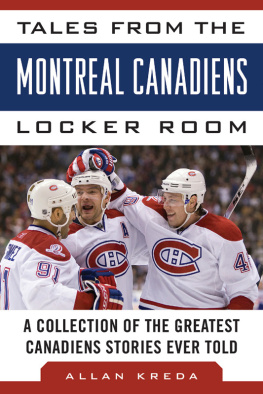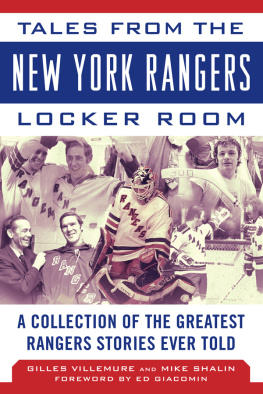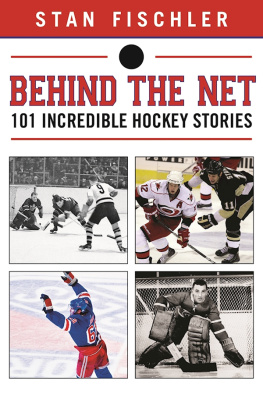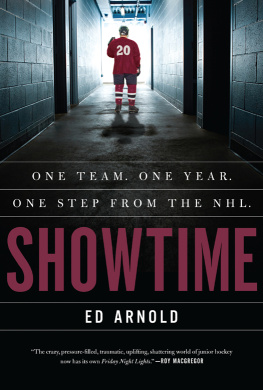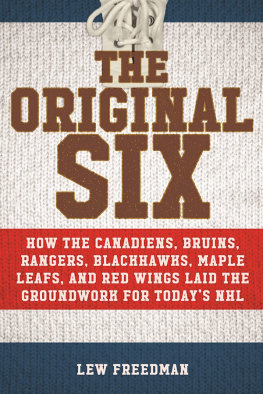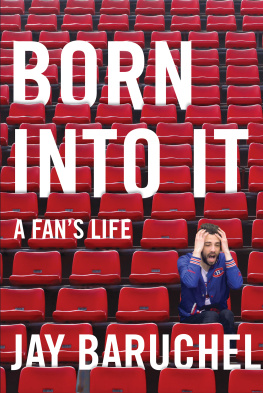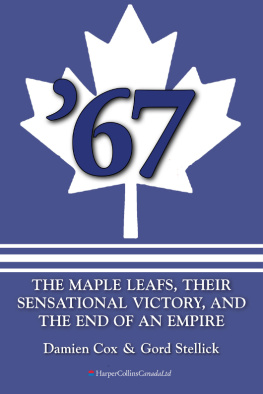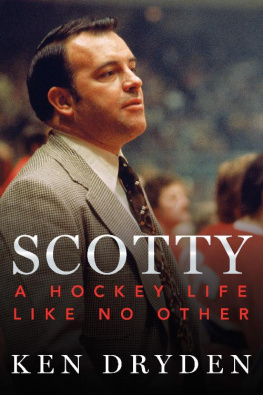TALES FROM THE
MONTREAL CANADIENS
LOCKER ROOM
A COLLECTION OF THE GREATEST CANADIENS STORIES EVER TOLD
ROBERT S. LEFEBVRE

Copyright 2012 by Robert S. Lefebvre
All Rights Reserved. No part of this book may be reproduced in any manner without the express written consent of the publisher, except in the case of brief excerpts in critical reviews or articles. All inquiries should be addressed to Sports Publishing, 307 West 36th Street, 11th Floor, New York, NY 10018.
Sports Publishing books may be purchased in bulk at special discounts for sales promotion, corporate gifts, fund-raising, or educational purposes. Special editions can also be created to specifications. For details, contact the Special Sales Department, Sports Publishing, 307 West 36th Street, 11th Floor, New York, NY 10018 or sportspubbooks@skyhorsepublishing.com.
Sports Publishing is a registered trademark of Skyhorse Publishing, Inc., a Delaware corporation.
Visit our website at www.sportspubbooks.com
10 9 8 7 6 5 4 3 2 1
Library of Congress Cataloging-in-Publication Data is available on file.
ISBN: 978-1-61321-239-4
Printed in the United States of America
To the two Gerrys, who told the tales and passed the torch; to Howard C, who put me in the game, but believes all those damned lies; to Sparkle, who made my dream come true; to Miss JB, whose wrong thinking I could love anything more in life than her; to Peanut Wings, for her companionship and giggles throughout this process; to Dave and Mike, for giving my work a window; to SB and LW for their support and encouragement; and to Dylan, for being the last man standing.
TABLE OF CONTENTS
PROLOGUE
There are a countless number of books written about the Montreal Canadiens, their glory and their greatness. In addition, there are about two dozen or more biographies and autobiographies, of and by players. I dont know if it is a proud thing to boast of when stating that I have read a sizeable portion of thembut I have.
Not all of these books, but many, are a recounting of stories Canadiens fans are well familiar with: the 24 Stanley Cups; the dynasties; the Rockets accomplishments and so on. I did not want to write a book that, for the most part, readers may already have read.
Having researched Canadiens history extensively in my time, I have come to look at certain things differently. While I have great appreciation for the legend and the lore of the hockey club, I have often found that much is missing to complete a fuller story. I have also learned that much of the myth surrounding the teams popular perception is misleading at best.
When the opportunity to write this book came to me from the publishers, I was already three years deep working on another Canadiens-related project. During that span, I dug right back in time, to the old newspapers on microfilm dating as far as 1903. Ive scoured them in both French and English, learning of the origins of the game of hockey in Montreal. I also learned that not everything regarding the Canadiens is as it appears to be. There are many perceptions which are inaccurate.
This book delves into those inaccurate perceptions, the myths that confound as often as they impress. Removing rose-colored glasses, another picture emerges. The club best known for being hockeys French-Canadian team is seen in a different light.
I hope that you enjoy the read.
Robert S. Lefebvre
INTRODUCTION
DECEPTIVE ORIGINS AND THE VERY FIRST GAME
The Montreal Canadiens are the most distinct of all hockey teams in North America, and the 24 Stanley Cups they have won play only a part of that assessment.
From the moment it announced its formation on December 4, 1909, the hockey club designated itself as being strictly French, seeking to fulfill what was then a longstanding local demand for a team representative of the language of the citys majority population. The ideal was a noble initial gesture, and with that nod the Canadiens were henceforth identified as hockeys French team. Such is how they have always been defined by the greater hockey community, and it is how they are forever to be envisioned. There is absolutely no getting away from it.
Much of their unique branding stems from having won as many titles as they have. Winning 24 Stanley Cups tends to have that effect. The rich past combined with the fact that they are the oldest professional hockey club in existence furthers their distinctiveness. The Canadiens are renowned worldwide, though in certain parts equally despised. Winning has that effect as well.
Further distinguishing the team, as well as helping contribute to the antipathy toward it, is the fact that their home base is situated in the lone Canadian province that has constitutionally declared itself as a distinct society. As the only hockey club on the continent to have been purposely created to satisfy a linguistic demand, the unique heritage is thereby translated into a restrictive definition, and with it comes specific expectations from a fanbase they must consistently cater to. They are condemned to forever attempt to remain as French as possible. They are cursed to win and damned if they fail. No other professional hockey club exists with such constraints. It is a skin impossible to shed.
But their history, their distinct origins and the reasons behind their success are badly misunderstood. Over time, myth has clouded truth and legend has embellished fact.
When it is stated that the Canadiens were created for the francophone population of Montreal, what that truly says is that they were originated to satisfy a specific demand from a large market.
Up until 1909, despite the large French majority in the city, there had never once been a hockey club composed strictly of French elements. The best players in Montreal had always been English. The francophone newspapers had, for quite a long time, bemoaned this fact. Since the establishment of the Stanley Cup in 1893, English Montreal teams known as the Amateur Athletic Association, the Victorias, the Shamrocks and the Wanderers had won the Cup a combined thirteen times. The French, understandably, wanted their own.
Hockey teams of the day consisted of seven players on the ice, plus a spare or two. The Montreal sports writers were in disbelief that finding seven quality French starters to compete against the English clubs could not be accomplished. There were countless French players available, and yet no team of strength had ever been put together as an official entry into any league or association. It had not come to be for a pair of reasons: Few figured they stood a chance; and the two best francophone talents spent their winters playing professionally in the International Hockey League, based in the Southern Ontario region and northern Michigan state.
The local press was hot on the topic of the fact that there was no French team when fate intervened and their wish came true in the late winter of 1909. Three coincidences had conspired to create a unique and rare opportunity: Jack Laviolette and Didier Pitre, players on the two Sault Sainte Marie teams in the IHL, saw their clubs eliminated from championship contention earlier than usual; a prolonged cold spell in Montreal allowed for quality ice conditions later than had been the norm; and the defending Cup champion Wanderers just happened to be seeking challengers in order to remain in game form for a defense of their title.
Within a matter of days, the press spearheaded the idea of an all-French club going up against the mighty Wanderers. The proposal was tendered in the papers and calls were made to players. The ice was quickly booked and the game announced for March 9. The historic match was highly anticipated, when fate took two more turns. The Wanderers lost a crucial game and were eliminated from Cup contention. They would play the game regardless. Several hours before the match, a winter storm hit the city, keeping all but 300 patrons and one newspaper reporter indoors. Not only would the Wanderers be a disinterested group for the game, but it would be attended only by the most ardent of francophone supporters.

